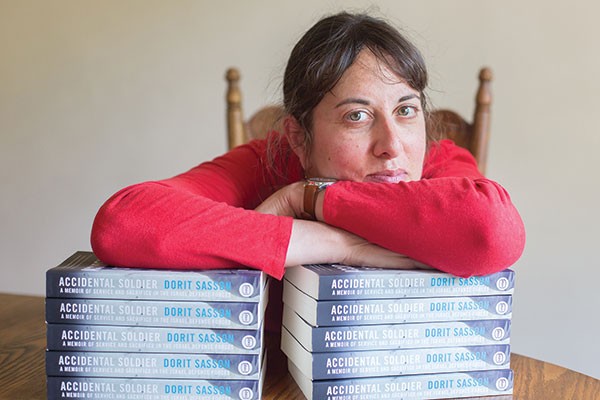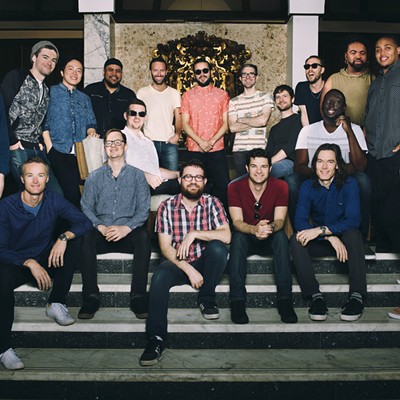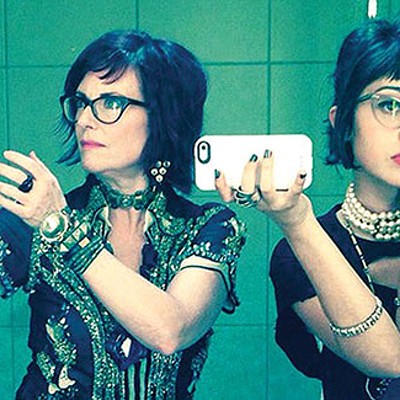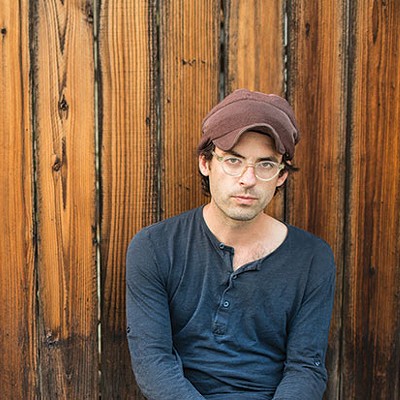Local author Dorit Sasson explores her experiences volunteering for the Israel Defense Forces
“It was a complete accident that I got inducted in the IDF.”

Author Dorit Sasson with copies of Accidental Soldier
DORIT SASSON
Accidental Soldier book launch: 6:30 p.m. Tue., June 14 (Shaler North Hills Library, 1822 Mount Royal Blvd., Glenshaw; free; www.shalerlibrary.org). Other appearances: June 23 (Penguin Bookshop, Sewickley) and June 26 (Classic Lines Bookstore, Squirrel Hill). doritsasson.com
Dorit Sasson’s Accidental Soldier: A Memoir of Service and Sacrifice in the Israel Defense Forces (She Writes Press) recounts her journey as a 19-year-old New Yorker who escapes her mother’s neuroticism and her own comfort zone by volunteering for the Israel Defense Forces (IDF). Her coming-of-age memoir — which concludes in 1993, when her service ended — also contrasts life in Israel’s cities with that in its countryside. This will be her first memoir in a planned trilogy.
Sasson, who lives in Squirrel Hill, is a Jewish feminist, author and motivational speaker. She also hosts the internet radio show Giving Voice to Your Story.
You returned to the U.S. in 2007 and started work on the book in 2012. Why did you wait?
You have to understand that every Israeli citizen does their time in the army. It’s nothing to write home about. I have a friend who lives in a rural area and said she might host me for a book tour. She immediately found out that nobody in the community was interested in coming to that kind of talk.
It would be a matter of time before I came back to the U.S., received a lot of support, felt safe and found my voice.
Why is it called “Accidental Soldier”?
It was a complete accident that I got inducted in the IDF. Israelis are born into the service. It was not something I ever planned for. My choice was not [for] Zionist reasons or religious ideologies. The world I grew up in was free-spirited, artsy, not anything close to the military. It was purely a way for me to get away from my mother and prove to my Israeli father that I was not going to be like her.
Why was it important to leave your mother?
If I hadn’t left her, I wouldn’t be who I am today. My mother was anxious and catastrophizing all the time. When I was able to get away from her, I was able to face my fears. The real discovery in my journey was that I didn’t have to be like her.
Most readers will have the Israeli-Palestinian conflict in mind. How do you feel about the conflict, then and now?
Most Israeli memoirs are political. The Accidental Soldier is not political at all. … This is a psychological/cultural memoir that shows a different side of Israel and my own journey of transformation. There have been many stories and memoirs written about what it’s like to be an immigrant in the U.S.; this one is about the immigrant experience in Israel. I did not discuss my views on the Israeli-Palestinian conflict in the memoir and to do so now would be a disservice to my readers. You can’t talk about Israel without getting in bias. I don’t want to infuse misinformation.
Were there any moments that you found difficult to include in your book?
One scene I didn’t explore was with Svetlana, a girl that lived in the same quarters as me. It had a very strong Tom-and-Jerry feel to it. Though I wrote about her in the book, I didn’t include our physical fight. Nobody even knew this fight was happening. She was harboring resentments against me because she couldn’t understand why this privileged American girl would voluntarily come to the army. I felt misunderstood. It was almost like a representation of the Cold War drama between us, the aggression that had built up. But I reached the max word count. It would have been another half of a chapter and when I saw what I was up against, I couldn’t include that.
What was the hardest part of writing this book?
Getting feedback from my editor got me thinking more about my experiences, and it was hard to go to that place in my mind. After each round of edits, I thought to myself regarding my editor: “Why are you nagging me?” It hurt each time I had to go back in time and write a take-away — “Why do I have to go deeper? I already told you everything!”
I was hiding from myself. I had to peel more layers from myself and I felt so bare. To make it authentic, I had to write it in that 19-year-old voice. You can’t hide your truth. You have to be with your truth.
Is there a key message in your book?
The main take-away of this book is that of courage. The character can’t go through any transformation if the writer doesn’t have the courage to write it.
The other, deeper message of the book is that of faith, and to continue going through with experiences. There’s a certain level of adaptability that you have to go through and tests you have to go through to see the rainbow on the other side, to reach a better version of yourself.
Sasson, who lives in Squirrel Hill, is a Jewish feminist, author and motivational speaker. She also hosts the internet radio show Giving Voice to Your Story.
You returned to the U.S. in 2007 and started work on the book in 2012. Why did you wait?
You have to understand that every Israeli citizen does their time in the army. It’s nothing to write home about. I have a friend who lives in a rural area and said she might host me for a book tour. She immediately found out that nobody in the community was interested in coming to that kind of talk.
It would be a matter of time before I came back to the U.S., received a lot of support, felt safe and found my voice.
Why is it called “Accidental Soldier”?
It was a complete accident that I got inducted in the IDF. Israelis are born into the service. It was not something I ever planned for. My choice was not [for] Zionist reasons or religious ideologies. The world I grew up in was free-spirited, artsy, not anything close to the military. It was purely a way for me to get away from my mother and prove to my Israeli father that I was not going to be like her.
Why was it important to leave your mother?
If I hadn’t left her, I wouldn’t be who I am today. My mother was anxious and catastrophizing all the time. When I was able to get away from her, I was able to face my fears. The real discovery in my journey was that I didn’t have to be like her.
Most readers will have the Israeli-Palestinian conflict in mind. How do you feel about the conflict, then and now?
Most Israeli memoirs are political. The Accidental Soldier is not political at all. … This is a psychological/cultural memoir that shows a different side of Israel and my own journey of transformation. There have been many stories and memoirs written about what it’s like to be an immigrant in the U.S.; this one is about the immigrant experience in Israel. I did not discuss my views on the Israeli-Palestinian conflict in the memoir and to do so now would be a disservice to my readers. You can’t talk about Israel without getting in bias. I don’t want to infuse misinformation.
Were there any moments that you found difficult to include in your book?
One scene I didn’t explore was with Svetlana, a girl that lived in the same quarters as me. It had a very strong Tom-and-Jerry feel to it. Though I wrote about her in the book, I didn’t include our physical fight. Nobody even knew this fight was happening. She was harboring resentments against me because she couldn’t understand why this privileged American girl would voluntarily come to the army. I felt misunderstood. It was almost like a representation of the Cold War drama between us, the aggression that had built up. But I reached the max word count. It would have been another half of a chapter and when I saw what I was up against, I couldn’t include that.
What was the hardest part of writing this book?
Getting feedback from my editor got me thinking more about my experiences, and it was hard to go to that place in my mind. After each round of edits, I thought to myself regarding my editor: “Why are you nagging me?” It hurt each time I had to go back in time and write a take-away — “Why do I have to go deeper? I already told you everything!”
I was hiding from myself. I had to peel more layers from myself and I felt so bare. To make it authentic, I had to write it in that 19-year-old voice. You can’t hide your truth. You have to be with your truth.
Is there a key message in your book?
The main take-away of this book is that of courage. The character can’t go through any transformation if the writer doesn’t have the courage to write it.
The other, deeper message of the book is that of faith, and to continue going through with experiences. There’s a certain level of adaptability that you have to go through and tests you have to go through to see the rainbow on the other side, to reach a better version of yourself.


















